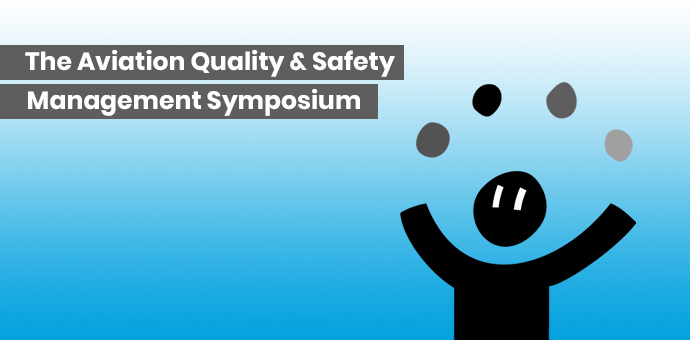Presentation Introduction – The Aviation Quality & Safety Management Symposium
Tues May 14th & Wed May 15th 2019 in Holiday Inn Sofia, Bulgaria
Attendance + Hotel Accommodation = 395 Euro. Every additional delegate from the same company = 295 Euro.
Considering the Value of Voluntary Versus Mandatory Aviation Training Programs
Presented by James Pike
When: Wednesday 15th May – 12:00 – 12:30: Session 5
Where: Holiday Inn Hotel, Sofia, Bulgaria
James has had a long and well-documented career within the security training field, which goes back nearly 25 years. His practical knowledge within this field is extensive and complements his knowledge of current statutory legislation. James career within the security industry started back in 1992 with “Aviation Defence International”, where he held the post of Global Training Director.
If you are engaged in Aviation Quality & Safety Management this is your one “must attend” event of the year.
For event details please click here
Introduction
Within the aviation environment, we have a number of training subjects which in fact are considered as “mandatory” and as such, it is an obligation of the Organisation to deliver such training (or arrange delivery) to demonstrate compliance with the regulatory obligation. Such training, of course, is auditable. There is also a whole raft of training which improves the knowledge and understanding of the trainee. This type of training could, of course, be considered as voluntary and whilst the perception is that it benefits the individual. It also, of course, benefits the organisation as a well-trained employee becomes an asset to the organisation.
During a discussion with an Accountable Executive the discussion concerning the relative merit of providing voluntary training to staff. The opinion of the AM was that “If I provide training for employees they may leave!” of course the response to this is what if you do not provide training and they stay!
Both comments recognise two of the valuable elements concerned with the whole subject of training:
1) Training can improve the ability of the employee to engage with the required task in an effective way
2/ Training has a cost so it is correct to establish a measure of the cost of training investment and to develop a measure of the effectiveness of the training program
Reality Check
Training in the proper performance of a job is time and money well spent. The employer should regard it as an investment rather than an expense. An effective program of training for workers can result in, better morale & improved performance.
Delivering a Training Program
Training guidelines typically follow a model that consists of:
A. Determining if training is needed
B. Identifying training needs
C. Identifying goals and objectives
D. Developing learning activities
E. Conducting the training
F. Evaluating program effectiveness
G. Improving the program
An effective training program allows employees to participate in the training process and to practice their skills or knowledge. This will help to ensure that they are learning the required knowledge or skills and permit correction if necessary.
To make sure that the training program is accomplishing its goals, an evaluation of the training can be valuable. Training should have, as one of its critical components, a method of measuring the effectiveness of the training.
Next Steps to joining the event
For an insight into meeting the challenges, Come and Join the forthcoming Quality & Safety Symposium 14th & 15th of May 2019 at Holiday Inn Sofia Bulgaria.
For additional information please see the following link or email office@sassofia.com
Tags:
Training Program, The Aviation Quality and Safety Management Symposium, Voluntary Training, Mandatory Training





